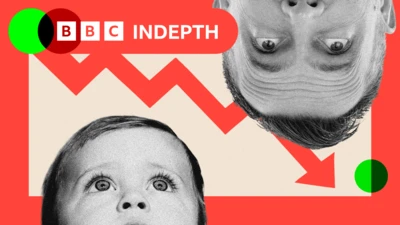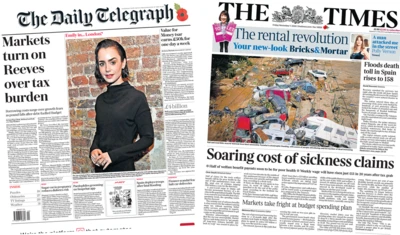We've updated our Privacy and Cookies Policy
We've made some important changes to our Privacy and Cookies Policy and we want you to know what this means for you and your data.
The Mail's ferocious conservatism has re-shaped modern Britain
Image source, AFP/Getty Images
- Author, Amol Rajan
- Role, Media editor
Sub-editors at the Mail might take against the clichĂŠ, but Paul Dacre was the last of his kind.
When he entered the profession in the early 1970s, British newspapers had a degree of influence that they do not have now.
To a greater extent than has generally been recognised, his experience of Washington and America in the 1970s was formative.
David English decided early on that Dacre would be his successor at the Mail, and had the charm to tempt him. Rupert Murdoch wanted him to be editor of The Times, but Dacre declined.
At the Mail, he both channelled and shaped the conservatism of middle class Britain beyond London.
He felt that these people, whose quiet patriotism and suburban affections he shared, were neglected by the "liberal metropolitan elite" - a phrase he did much to popularise, along with "cultural Marxism".
There remain big questions about his departure: from why now, to what his new role will actually be, and who his successor is. Answers to these may not become clear for some days.
At 70, and having been an editor for 26 years, sheer longevity must account for something, and the logic of what probably ought to happen at the Mail - editorial savings, synergies with Mail Online, and so on - have caused stress for all newspaper chiefs.
Dacre is hated by many of his fellow countrymen, though social media may amplify negative feelings, and the verdict of millions of readers who considered his paper value for money for decades should not be forgotten.
Print journalism is a trade rather than a profession - and within it, Dacre was the master craftsman. He had an obsessive eye for detail, and often said he thought he was a better re-write man than reporter.
Colleagues, including those with very different politics, respected his intuitive understanding of his audience.
It is reasonable to claim that Brexit was in part his doing, because it followed years of campaigning against the EU, and warnings - sometimes lurid - about immigration.
Few people now remember that both the Standard and the Mail were pro-EU before he took their helms.
Other Dacre-led campaigns garnered support from across the political spectrum.
The pursuit of justice for Stephen Lawrence was the best-known; but the campaigns for relatives of victims of the Omagh bombing, for Gary McKinnon, and more recently against plastic bags have had a huge impact.
Dacre also led objections to the system of regulation of the press recommended by Lord Leveson, and desired by many victims of press abuse.
Though he oversaw the launch of both Metro and Mail Online, his involvement in both is complex.
On Metro, he ensured that it didn't have the editorial power to compromise the Mail's circulation.
On Mail Online, he cannot have helped but notice that many of the editorial values of the Mail were absent.
Prime ministers and politicians fawned before him, but he often regarded them as irritants.
David Cameron never impressed him. Ken Clarke, who the Mail backed to be Tory leader, came to embody a Europhilia Dacre disdained.
And while he loathed much of Blairism, including its figurehead, he found in Gordon Brown - who he once described as "touched by the mantle of greatness" - a genuine friend.
Dacre's editorship of the Mail was testimony to the power of newspapers within a culture. As they - and he - retreat from centre stage, it's not yet clear what will replace them.
If you're interested in issues such as these, please follow me on or ; and also please subscribe to from Radio 4. I'm grateful for all constructive feedback. Thanks.
Top Stories
More to explore
Most read
Content is not available








